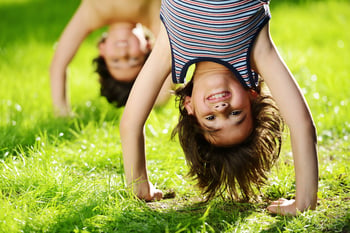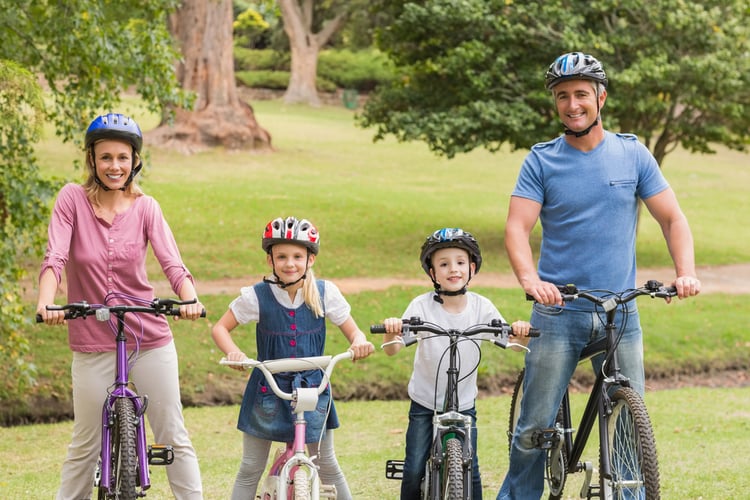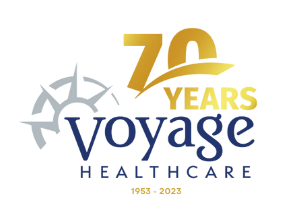When someone hits their head, we've all heard the phrase, "they just had their bell rung," but this phrase could be significantly underplaying the trauma of an injury. According to the University of Pittsburgh Medical Center, between 1.7 and 3 million sports- and recreation-related concussions happen each year, and it is anticipated that there are millions more that occur and go unreported. There has been a significant amount of research surrounding concussions in recent years and much greater awareness about the associated risks. Read on to learn more about sports-related concussions, recognize the signs of a concussion, and how you can treat and potentially prevent concussions.
What is a Sports-Related Concussion?
A concussion is a type of traumatic brain injury.
A concussion is caused by a strong impact to the head that leads to problems with thinking or other neurological symptoms. Concussions can occur in any sport when there is a blow to the head, neck, or body that sends a strong force to the head.
The American Association of Neurological Surgeons states the symptoms of a concussion are often varied and can range from mild to severe depending on the amount of damage to the brain.
Look for symptoms such as:
- A constant or recurring headache
- Trouble with balance and/or coordination
- Extra-sensitivity to light or sound, dizziness, changes to sight or hearing
- Agitation, confusion, distractibility, disorientation, shortened attention span
- Difficulty expressing thoughts or words
- In rare cases, a temporary loss of consciousness can occur
Concussions can happen in many different sport and recreation environments, but healthcare providers often see sports-related concussions occurring while participating in the following activities:
| Football | Powered Recreational Vehicles |
| Rugby/Lacrosse | Playground Equipment |
| Skateboards | Trampolines |
| Cycling | Baseball and Softball |
| Ice Hockey | Soccer |
| Gymnastics | Snowboarding |
| Wrestling | Alpine Skiing |
How Do You Diagnose a Concussion?
If your loved one is experiencing any of the symptoms noted above, it's important to call your healthcare provider immediately. Typically, concussion-related symptoms show up relatively quickly, but it's important to keep checking after several hours and even after a few days to evaluate any new symptoms that may have appeared.
Healthcare providers will assess several factors when evaluating a potential concussion, some of which may be physical examinations and in severe cases imaging (CT or MRI) may be used. Practitioners will look for:
- Recurrent vomiting
- Loss of consciousness
- Amnesia
- Severe or worsening headaches
- Asymmetrical pupils
- Cognitive and balance issues
How Do You Treat a Concussion?
Unfortunately, there is no magic potion to treat a concussion. The most important treatment post-concussion is rest - lots of rest at night and even naps during the day.
For the first few days after a concussion. You will be encouraged to limit activities that require heavy concentration. Resting also means staying out of sports for a few days up to several weeks depending on the severity of the concussion. After rest, activity can be reintroduced as long as it does not make any lingering symptoms worse. Start small with short walks, or maybe a light jog. You can continue to introduce sport-specific exercise and non-contact training as symptoms recede.
Are There Ways to Prevent a Concussion?

-
Wear helmets! We've come a long way in a few short decades with the acceptance of helmets. Always wear protective headgear when biking, skiing, snowboarding, or riding ATVs. This goes for adults, too! Adults may have more experience than kids when it comes to these activities, but adult heads need protecting, too! Plus, it's important to set a good example for children.
-
Buckle your seat belt. Just like wearing helmets, seatbelt usage has increased tremendously in recent decades. Traffic accidents can also cause head injuries so make sure to buckle up to take the best care of yourself and your loved ones.
- Make your home safe. It's not just on the field, rink, or hill where concussions can occur. Falls at home are a leading cause of injury. Pay special attention to slippery rugs or items you may trip over. Also, if you have little ones at home, make sure to use gates around stairs and keep windows locked to prevent falls.
- Exercise regularly. Exercise regularly to strengthen muscles throughout your body. Core muscles, leg muscles, and neck muscles can all help avoid injury and improve balance.
- Encourage good sportsmanship. Teach children the value of good sportsmanship. Injuries can occur if rules aren't being followed. Support umpires and referees who are enforcing the rules as ultimately this helps with the safety of the game or activity.
Concerns? Visit us at Voyage Healthcare
While concussions are prevalent in today's active lifestyles, treating them properly and giving our brains the time to heal from the trauma is imperative. One of the most dangerous things you can do when recovering from a concussion is return to an activity too soon and sustain a second concussion. Concussions are often described as a deep bruise to our brain, and just like any other part of our body, we need time to let that bruise heal.
If you or a loved one sustains a sports-related concussion, we encourage you to visit our Sports Medicine specialist, Samir Joshi, M.D. Dr. Joshi has a passion for helping keep athletes healthy and thriving.






Comments